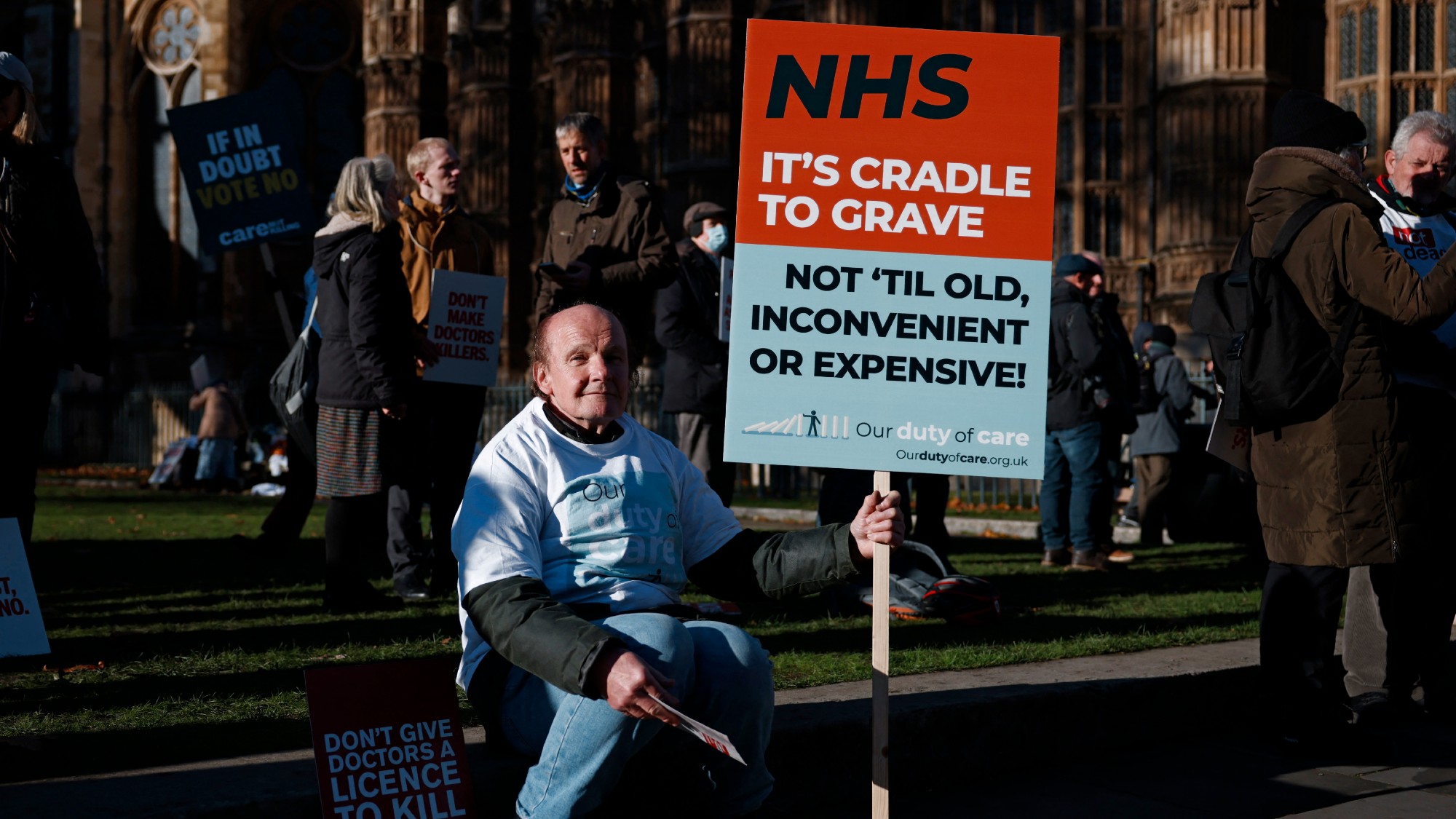Assisted dying bill: is it being rushed?
Kim Leadbeater's significant changes to her landmark bill have caused consternation

A free daily email with the biggest news stories of the day – and the best features from TheWeek.com
You are now subscribed
Your newsletter sign-up was successful
Kim Leadbeater's assisted dying bill – the Terminally Ill Adults (End of Life) Bill – is one of the most high-profile reforms to be proposed in decades, said The Independent; few issues touch people's lives more "profoundly". So the Labour MP's decision to significantly alter the bill's terms has inevitably caused disquiet.
Originally, the assisted dying bill required that cases not only be approved by two doctors, but that a High Court judge also sign off on it. Leadbeater insisted that this extra layer made her bill's protections the most robust in the world. But it turned out that the provision had a major flaw: High Court judges wouldn't have time to do more than rubber stamp each case. So the plan now is for applications to be reviewed instead by a panel made up of a senior lawyer, a social worker and a psychiatrist. This idea has merit: the panel's broader range of skills could make the system yet more robust. But you wonder why all this only occurred to the bill's sponsors at this late stage. What does it tell us about their decision-making until this point?
I'd say it has been "slapdash", said Rachel Clarke in The Sunday Times. Whatever form the bill takes, it is vital it has checks to ensure people are not coerced into ending their lives. To this end, its sponsors came up with the ill-conceived judge-based safeguard – and overlooked a far better one: a multidisciplinary team (MDT) made up of experts who are already involved in the patient's care, convened as soon as the patient asks to die.
The Week
Escape your echo chamber. Get the facts behind the news, plus analysis from multiple perspectives.

Sign up for The Week's Free Newsletters
From our morning news briefing to a weekly Good News Newsletter, get the best of The Week delivered directly to your inbox.
From our morning news briefing to a weekly Good News Newsletter, get the best of The Week delivered directly to your inbox.
MDTs are often used when it is unclear what is in a patient's best interests. But what is now being proposed is not an MDT, because no one on the panel will be familiar with the patient – and its review will come at the end of the process, not the start, when the person is likely to be most vulnerable to coercion. Critics of the bill note that the MPs scrutinising it at committee stage have not even heard from an expert in coercive control, said Jamie Gillies on UnHerd. A sense is growing that this bill is being pushed through too hastily.
What is actually happening, said Polly Toynbee in The Guardian, is that the bill's ideological opponents are not trying to improve it (which is the point of the committee stage) but to kill it, by gumming up proceedings with amendments and misleading MPs about its provisions.
With the panel, the bill will still have the strongest safeguards in the world, said Camilla Cavendish in the FT. And it is so narrowly drawn, a lot of sick people will still have to travel to Dignitas in Switzerland if they want help to die. MPs may feel the issue is so fraught, it is easier to do nothing; but the status quo – in which many terminally ill people end up starving themselves to death to escape their agony – is "indefensible".
A free daily email with the biggest news stories of the day – and the best features from TheWeek.com
-
 6 of the world’s most accessible destinations
6 of the world’s most accessible destinationsThe Week Recommends Experience all of Berlin, Singapore and Sydney
-
 How the FCC’s ‘equal time’ rule works
How the FCC’s ‘equal time’ rule worksIn the Spotlight The law is at the heart of the Colbert-CBS conflict
-
 What is the endgame in the DHS shutdown?
What is the endgame in the DHS shutdown?Today’s Big Question Democrats want to rein in ICE’s immigration crackdown
-
 Democrats push for ICE accountability
Democrats push for ICE accountabilityFeature U.S. citizens shot and violently detained by immigration agents testify at Capitol Hill hearing
-
 Fulton County: A dress rehearsal for election theft?
Fulton County: A dress rehearsal for election theft?Feature Director of National Intelligence Tulsi Gabbard is Trump's de facto ‘voter fraud’ czar
-
 ‘Melania’: A film about nothing
‘Melania’: A film about nothingFeature Not telling all
-
 Greenland: The lasting damage of Trump’s tantrum
Greenland: The lasting damage of Trump’s tantrumFeature His desire for Greenland has seemingly faded away
-
 Minneapolis: The power of a boy’s photo
Minneapolis: The power of a boy’s photoFeature An image of Liam Conejo Ramos being detained lit up social media
-
 The price of forgiveness
The price of forgivenessFeature Trump’s unprecedented use of pardons has turned clemency into a big business.
-
 Reforming the House of Lords
Reforming the House of LordsThe Explainer Keir Starmer’s government regards reform of the House of Lords as ‘long overdue and essential’
-
 The ‘mad king’: has Trump finally lost it?
The ‘mad king’: has Trump finally lost it?Talking Point Rambling speeches, wind turbine obsession, and an ‘unhinged’ letter to Norway’s prime minister have caused concern whether the rest of his term is ‘sustainable’